33 Iconic British Beers That Define UK Brewing Tradition
British beers represent a rich cultural tradition steeped in craftsmanship and regional pride.
Centuries of brewing expertise have shaped these remarkable beverages into liquid storytellers of local heritage.
Passionate brewers across the United Kingdom craft distinctive ales with remarkable depth and character.
Regional ingredients, time-honored techniques, and unique fermentation processes contribute to their exceptional quality.
Small breweries and traditional pubs continue preserving generations of brewing knowledge with meticulous care.
These beloved drinks capture the essence of British social culture, connecting communities through shared experiences.
Each brew tells a narrative of landscape, history, and community spirit.
You'll find 26 outstanding examples that showcase the incredible diversity of British beer culture here:
The Best British Beer Types for All Tastes
Bitter, porter, golden ale, or stout, Britain’s beer styles are as diverse as the country’s landscapes. Find the right type for your next pint or pairing adventure.
Imperial Stout
Imperial stout represents an intense dark beer originating in London but popularized through Russian beer culture with complex brewing techniques.
Brewers craft this robust beer to deliver powerful flavors ranging from deep red to dark brown in color.
Roasted malt, dark fruit, chocolate, and coffee notes dominate its rich taste profile.
Strong alcohol content typically ranges between 8 to 12% ABV, making it a heavyweight among beer styles.
Hop varieties contribute significant bitterness to its overall character.
Traditional brewing methods emphasize deep, multilayered flavor compositions.
Modern American craft breweries have embraced imperial stout as a signature experimental beer style.
International brewing communities continue evolving this sophisticated beer with innovative ingredient combinations.
Scotch Ale
Scotch ale is a robust beer style celebrated for its intense malty profile and deep caramel complexity originating in Scotland.
Brewers craft these strong beers with high alcohol content ranging from 6 to 10% ABV, creating a powerful drinking experience.
Dark copper to brown in color, Scotch ales showcase rich layers of molasses and dried fruit flavors that dominate each sip.
Malty sweetness characterizes the beer's primary taste, with minimal hop presence and subtle undertones of plums and caramel.
Traditional Scottish brewing techniques contribute to the ale's signature smooth and full-bodied texture.
Malted grains provide the foundational flavor profile, ensuring a warming and satisfying beverage.
Scotch ales represent a classic beer style deeply rooted in Scottish brewing traditions.
Beer enthusiasts appreciate these ales for their complex and intense malt-forward characteristics.
Sweet Stout
Sweet stout is a creamy, full-bodied beer style originating in early 1900s England, characterized by its unique addition of milk sugar (lactose).
Dark and rich, the beer delivers grainy malt flavors with enticing notes of coffee and chocolate.
Its smooth texture combines medium hop bitterness with well-balanced medium to high sweetness.
Sweet stouts offer complex flavor profiles that complement chocolate desserts exceptionally well.
Beer enthusiasts enjoy pairing these beers with creamy cheeses and hearty meat dishes.
The brewing process involves carefully selected malts and specialized sugar additions.
Sweet stouts typically range between 4-6% alcohol content.
Brewers craft these beers to provide a uniquely indulgent drinking experience.
Stout
Stouts are robust dark beers originating in 18th-century London with powerful roasted malt profiles that deliver intense coffee and chocolate sensations.
British brewers developed these top-fermented beers as stronger versions of porter styles, creating a distinctive brewing tradition.
Classic stouts range from deep brown to black in color with medium body and smooth, silky textures.
Roasted barley provides complex aromas reminiscent of espresso and dark cocoa.
Traditional dry stouts feature minimal hop characteristics and exceptionally long, dry finishes.
Beer enthusiasts appreciate their rich, complex flavor profiles.
Brewing techniques emphasize balanced malt characteristics and deep roasted notes.
Alcohol content typically ranges between 4% and 7%, making stouts substantial yet drinkable beverages.
Oatmeal Stout
Oatmeal stouts are dark, smooth British beers crafted with rolled oats that create a silky texture and unique flavor profile.
Originating in late 19th-century England, these stouts feature roasted malt characteristics reminiscent of coffee with subtle sweet and earthy undertones.
Brewers add oats to enhance the beer's body and provide a gentle nutty complexity.
Hop bitterness remains low to moderate, allowing the rich malt flavors to dominate.
Dark and robust, these stouts complement hearty dishes like roasted meats and seafood.
Chocolate, caramel, and fruit desserts pair exceptionally well with their complex taste.
Oatmeal stouts offer beer enthusiasts a creamy, full-bodied drinking experience that balances roasted notes with smooth drinkability.
Porter
Porter is a dark, complex beer style born in 18th-century London with rich brewing history and evolving flavor profiles.
British pub workers originally blended different beer strengths to create this distinctive ale, mixing aged, fresh, and strong brews for unique taste experiences.
Dark malted barley and substantial hop additions give porter its signature roasted, malty characteristics with medium bitterness.
Modern brewing techniques have expanded porter varieties into brown, robust, and Baltic styles, offering beer enthusiasts diverse drinking options.
Brewers carefully craft these ales to balance deep roasted notes with subtle hop undertones.
Beer lovers appreciate porter's deep brown to black color and smooth, rich mouthfeel.
Alcohol content typically ranges between 4.5% and 6.5%, making it a moderate-strength beer choice.
Porter remains a testament to traditional British brewing craftsmanship, continuing to evolve while maintaining its distinctive heritage.
Barley Wine
Barley wine represents an intensely strong English ale characterized by its robust malty profile and high alcohol content ranging between 7-12% ABV.
Bass Brewing introduced this powerful beer style in 1903, though variations existed earlier under different names.
British versions showcase a complex flavor landscape with sherry-like undertones, pronounced malty sweetness, and subtle hop bitterness.
Toffee and dried fruit aromas define its distinctive character, creating a rich sensory experience.
Brewers worldwide now produce this distinctive beer style, expanding beyond its original English roots.
Global interpretations maintain the core attributes of high alcohol strength and deep malted complexity.
Sophisticated beer enthusiasts appreciate its nuanced flavor profile and potent alcoholic punch.
Modern craft breweries continue exploring and reimagining this classic beer tradition.
Cask Ale
Cask ale represents an authentic brewing method originating in Britain, delivering unfiltered beer directly from fermentation vessels without artificial carbonation.
Natural ingredients and active yeast create a distinctive brew with complex flavors and gentle carbonation.
British brewers carefully craft these traditional ales using time-honored techniques that preserve beer's original character.
Unlike mass-produced beers, cask ales develop unique taste profiles during natural maturation processes.
Brewers allow beer to continue fermenting and developing nuanced aromas after brewing.
Traditional pubs and beer enthusiasts celebrate these rich, unpasteurized beverages for their depth and complexity.
Moderate carbonation and subtle flavors distinguish cask ales from commercial beer varieties.
Microbreweries and regional British breweries continue preserving this historic beer-making tradition.
English Pale Ale
English pale ale revolutionizes brewing traditions with its lighter, golden-bronze beer crafted from pale barley malt, originating in Burton-on-Trent during the early brewing innovations.
Brewers developed this style alongside Indian pale ales, creating a significant beer category that transformed drinking experiences.
Historical records show multiple names like sparkling ale and dinner ale reflecting its versatile nature.
Traditional versions range between 4.5% and 5.5% alcohol content, offering balanced flavor profiles.
British breweries perfected the technique, making it a staple in pub culture.
Beer enthusiasts appreciate its crisp, malty characteristics and moderate hop presence.
Brewing methods emphasized creating a smoother, more approachable beer compared to darker alternatives.
Serving temperatures and glassware further enhance its complex yet accessible drinking experience.
India Pale Ale
India pale ales energize beer lovers with a bold brewing technique designed for long maritime journeys to British colonies during the 19th century.
British brewers developed this distinctive beer style by increasing alcohol content and hop levels to ensure preservation during extended sea travels.
Sailors and colonial troops discovered that higher alcohol percentages and additional hops prevented spoilage in tropical climates.
European brewers first documented the term "India pale ale" in the 1830s, though historians believe the style emerged earlier.
Brewing experts suggest the technique originated from practical transportation challenges facing British imperial traders.
Hop additions created a crisp, bitter flavor profile that distinguished IPAs from traditional pale ales.
Beer enthusiasts now celebrate these brews for their complex, intense taste and historical significance.
Modern craft breweries continue experimenting with IPA variations, honoring its innovative maritime heritage.
English India Pale Ale
English India pale ale delivers a classic beer style with golden amber to light copper hues and balanced alcohol levels between 5 and 7.5% ABV.
British brewers developed this traditional pale ale during colonial times to survive long sea voyages to India.
Strong hopping and higher alcohol content helped preserve the beer during transportation.
Robust malt backbone provides a solid foundation for its crisp flavor profile.
Distinctive hop character creates a slightly bitter and complex taste experience.
Brewers carefully select specific hop varieties to enhance its traditional character.
Cascade and Fuggle hops often contribute to its signature flavor.
Craft beer enthusiasts continue to appreciate this historic brewing style.
Pale Ale
Pale ale emerges as a distinctive beer style originating in 18th-century England, characterized by its lighter color and hop-forward profile derived from pale barley malt.
British brewers developed this beer through experimental brewing techniques that emphasized unique hop selections and malt compositions.
Beer enthusiasts appreciate its golden to amber color spectrum and balanced flavor complexity.
Brewing methods evolved dramatically across centuries, creating regional variations with different strength levels.
Most pale ales feature a crisp, refreshing taste with moderate bitterness.
Traditional English versions highlight subtle malt sweetness while modern craft interpretations often include more intense hop characteristics.
American pale ales tend to use more aggressive hop profiles compared to their British counterparts.
Brewing techniques continue to shape this versatile beer style, reflecting ongoing innovation in craft beer production.
English Brown Ale
English brown ales are traditional British beer styles characterized by rich malt profiles and low hop presence.
Brewing traditions trace back centuries, with modern versions distinctly differing from original recipes.
Northern varieties offer dry, lighter experiences with subtle caramel undertones, while Southern styles deliver more pronounced fruity and sweet malty characteristics.
These beers showcase complex flavor combinations reminiscent of biscuits and toffee.
Brewers carefully balance malted grains to create smooth, balanced drinking experiences.
Beer enthusiasts appreciate the nuanced differences between regional variations.
English brown ales represent a classic brewing approach that highlights grain-forward flavor profiles.
Brewing methods continue to evolve while maintaining core traditional techniques.
Oyster Stout
Oyster stout is a unique beer style brewed with oyster shells or whole oysters, creating a distinctive dark brew with mineral and saline undertones.
British pub culture first connected oysters and stout, where patrons enjoyed these two together as a classic pairing.
Brewers originally used oyster shells to clarify beer and remove impurities, which evolved into a more intentional flavor strategy.
Sweet stout characteristics blend with briny oceanic notes, producing a complex beverage with unexpected depth.
Most modern versions incorporate whole oysters during brewing, enhancing the beer's rich profile.
Mineral hints of cocoa and caramel complement the subtle sea-inspired character.
Dark and smooth, these stouts offer a surprising taste experience that challenges traditional beer expectations.
Beer enthusiasts appreciate this unconventional brewing method that bridges maritime and brewing traditions.
Brown Ale
Brown ale represents a classic beer style originating in Britain with deep historical roots in 19th-century brewing traditions.
British brewers initially used brown malt to create diverse beer varieties before pale malt's introduction nearly eliminated the style.
Newcastle Brown Ale pioneered modern brown ale production in the 1920s, establishing a new standard for the category.
Modern brown ales feature two distinct regional approaches: traditional British versions and American interpretations.
These beers typically range from light copper to dark brown in color.
Brown ales often deliver mild to moderate hop profiles with balanced malt sweetness.
Most brown ales showcase nutty, caramel-like flavor characteristics.
Brewing techniques continue to evolve, preserving this beloved beer style's complex heritage.
Bitter
Bitter represents a classic British ale style brewed primarily in UK pubs with distinctive malt-forward characteristics and moderate hop profiles.
British brewers craft these ales in three primary strength categories: ordinary bitter (3.2-3.8% ABV), best bitter (3.8-4.6% ABV), and strong bitter or extra special bitter (4.8% ABV and higher).
Cask-conditioning gives these ales their signature smoothness and complexity.
Each bitter variant offers unique color variations and flavor nuances while maintaining a light to medium body.
Low alcohol content makes these beers perfect for extended social drinking sessions.
Traditional brewing techniques ensure balanced maltiness and subtle hop bitterness.
British pub culture has embraced bitter ales as a staple beverage for generations, reflecting deep-rooted brewing traditions.
English Barley Wine
English barley wine represents a robust beer style originating from British aristocratic brewing traditions as an alternative to wine during international trade disputes.
High-alcohol brewing techniques create complex beverages with strength reaching 12% ABV, featuring deep malt profiles and rich flavors of bread, toffee, dried fruit, and molasses.
Aged versions develop port-like characteristics, transforming the brew into a sophisticated drink with smooth, velvety textures and nuanced alcohol warmth.
Historical production required extensive time and resources, with brewing processes extending over a year to develop intricate flavor profiles.
Traditional serving methods recommend using snifter glasses for slow, deliberate sipping that allows full appreciation of the beer's complexity.
Color variations range from deep gold to dark brown, reflecting the brew's diverse brewing techniques.
Alcohol content remains balanced despite high percentages, ensuring no harsh overtones emerge.
Brewers carefully craft these beers to create a sophisticated alternative to traditional wines, embodying British brewing excellence.
Strong Bitter
Strong bitter represents a distinctive British ale brewed with carefully balanced malt and hop characteristics.
Brewers developed this style after 1642 when coke fuel replaced traditional wood and peat roasting methods, enabling lighter beer production.
Dark gold to copper in color, strong bitter ranges between 4-7% alcohol by volume with moderate hop presence.
Malty flavors dominate the profile, complemented by subtle caramel and fruity undertones.
Low to medium carbonation contributes to its medium to full-bodied texture.
Despite its name, bitterness serves as an accent rather than an overwhelming flavor.
Historical brewing techniques transformed beer production, allowing more nuanced and refined ale styles.
Brewers continue to craft strong bitter as a respected traditional British beer.
Golden Ale
British golden ale reveals crisp, hoppy beer styles unique to United Kingdom brewing traditions.
Pale golden liquid delivers light malty flavors with distinctive British hop character.
Beer enthusiasts enjoy its refreshing medium body and moderate bitterness.
Traditional brewing methods use authentic British ingredients like local hops and malts.
Golden ale sits between pale ale and bitter in flavor profile.
Moderate alcohol content ranges from 3.5% to 5.3% ABV.
Brewers craft this style to balance hoppy notes with subtle malt sweetness.
British pubs and craft breweries continue popularizing this approachable beer style across England.
Old Ale
Old ale represents a robust English strong ale with a deep malty character that originated in traditional wooden cask brewing techniques.
Dark amber or brown brews boast a firm body and mellow flavor profile dominated by rich malt foundations.
Caramel, nutty, and molasses notes define its complex taste experience.
Dried fruit undertones enhance the beer's sophisticated palate.
Moderate carbonation supports a smooth drinking sensation.
Alcohol content typically ranges between 6 to 9 percent.
Brewers distinguish old ales from barley wines through slightly lower alcohol levels and less pronounced hop characteristics.
Historic brewing methods continue to inspire modern interpretations of this classic English ale style.
Braggot
Braggotis a historic honey-beer hybrid originating in the British Isles during the Middle Ages, blending mead's sweetness with beer's complexity.
Medieval literature, including Chaucer's Canterbury Tales, referenced this unique beverage centuries ago.
Brewers traditionally craft braggot using equal proportions of malt and honey, though ingredient ratios can vary.
Some brewing traditions classify it as a beer with mead characteristics, while others consider it a mead infused with hops and grains.
Fermentation creates a rich, nuanced drink that bridges two ancient alcoholic traditions.
Medieval monks and tavern patrons likely enjoyed this versatile alcoholic beverage.
European brewing techniques contributed to braggot's development and popularity.
Modern craft brewers continue experimenting with this intriguing medieval drink.
Kentish Ale
Kentish ale represents a classic English brewing tradition exclusively crafted in Kent County since 1698 at Shepherd Neame Brewery, Britain's oldest beer producer.
Brewed with local hops and a special Kentish ale yeast strain, this amber to brown beer draws its unique character from artesian well water beneath the brewery.
Regular versions range from 3.5% to 4.8% ABV, while strong ales reach 7% ABV.
Distinctive hoppy and toffee aromas define its flavor profile.
Fruity and bitter notes create a complex drinking experience.
Kentish ale reflects centuries of brewing expertise.
Each sip tells a story of regional ingredients and time-honored techniques.
The beer embodies Kent's rich agricultural and brewing heritage.
Ordinary Bitter
Ordinary bitter are classic British ale styles defining traditional pub drinking with low alcohol levels between 3.2% and 3.8% ABV.
Beer enthusiasts appreciate its balanced flavor profile featuring golden to copper colors and moderate body.
Malt sweetness harmonizes perfectly with subtle hop bitterness without overwhelming the palate.
Characteristic bready and toasty notes emerge through carefully selected malts.
Caramel-like aromas complement the beer's smooth drinking experience.
Moderate fruitiness adds complexity to its lightweight character.
Brewers craft this style to provide an easy-drinking beer perfect for extended social sessions.
British pubs have long served ordinary bitter as a standard session ale for relaxed gatherings.
Mild Ale
Mild ale represents a classic British beer style originating in the 19th century with distinctive low hop bitterness and minimal alcohol content ranging from 3.0 to 5%.
Dark and light versions characterize this traditional brew, offering beer enthusiasts a smooth drinking experience.
British breweries crafted mild ale as a refreshing alternative to stronger beer styles.
Working-class laborers particularly enjoyed its affordable price and lower alcohol levels.
Malt-forward flavors dominate mild ale's profile, creating a gentle and approachable taste.
Dark mild varieties showcase deeper caramel and roasted malt characteristics.
Lighter mild ales present a more subtle, golden appearance with balanced maltiness.
Regional breweries across England continue producing this historic beer style, maintaining its cultural brewing heritage.
Session Ale
Session ales are low-alcohol beers designed for extended, enjoyable drinking without heavy intoxication.
Brewers craft these ales between 3% and 5% ABV to ensure maximum flavor and minimal impairment during social gatherings.
Beer enthusiasts appreciate session ales for their balanced profiles that blend malt sweetness with hop bitterness.
These versatile brews come in multiple styles, including IPAs, pale ales, and amber ales.
Multiple brewing techniques allow complex flavor development despite lower alcohol content.
Drinkers can enjoy several session ales in one sitting without significant alcohol impact.
Modern brewing methods enable rich taste experiences in lighter beer formats.
Craft breweries continue expanding session ale varieties to meet growing consumer demand.
Rutland Bitter
Rutland bitter is a robust English ale defining regional brewing excellence through its distinctive full-bodied character and traditional production methods.
Crafted exclusively in Rutland county's East Midlands region, this distinctive beer features a complex flavor profile balancing subtle sweetness with fruity and floral hop notes.
Local brewers create the ale using high-quality regional water and specialized yeast strains passed down through generations.
Beer enthusiasts appreciate its moderate 3.4% alcohol content, which enhances the drinking experience without overwhelming the palate.
Historical records first documented this ale in 1964, marking its significant place in British brewing heritage.
Rutland water provides a unique mineral composition contributing to the beer's exceptional taste and smooth finish.
Brewing techniques remain faithful to original recipes, ensuring consistency and authenticity.
Small-batch production maintains the bitter's reputation as a premium regional specialty.
Britain’s Top Beer Producers: Who’s Brewing Excellence?
From historic breweries to inventive newcomers, British beer producers keep traditions alive while constantly surprising drinkers. Discover which names belong on every beer lover’s list.
The Innis And Gunn Brewing Company
Innis & Gunn beers revolutionize traditional brewing through innovative barrel-aging techniques pioneered by Master Brewer Dougal Sharp since 2003.
Scottish craft brewery specializes in aging beers inside premium whisky barrels, creating distinctive flavor profiles that distinguish their products from standard brewing methods.
Original Oak Aged Beer launched their signature approach, quickly gaining international recognition for exceptional taste complexity.
Their diverse portfolio includes robust IPAs, smooth lagers, and rich stouts that appeal to beer enthusiasts worldwide.
Multiple international awards validate their experimental brewing strategies and commitment to quality craftsmanship.
Scottish brewing tradition meets modern innovation through their unique maturation process.
Whisky barrel aging imparts extraordinary depth and character to each beer.
Dougal Sharp's passionate commitment continues driving the brewery's global reputation for exceptional craft beverages.
Round Corner Brewing
Round Corner Brewing represents a passionate craft brewery in Melton Mowbray, Leicestershire, specializing in innovative and flavorful beer production.
Located in England's brewing heartland, this small-scale operation blends traditional techniques with contemporary brewing methods.
Beer enthusiasts appreciate their commitment to creating unique, high-quality brews that showcase regional character.
Round Corner Brewing focuses on sustainable practices and strong community connections.
Their diverse beer portfolio ranges from classic styles to experimental craft selections.
Brewers carefully select premium ingredients to ensure exceptional taste and quality.
Local ingredients and precise brewing techniques distinguish their beer offerings.
Leicestershire's brewing heritage strongly influences their creative approach to craft beer production.
Sharp’S Brewery
Doom Bar represents Sharp's Brewery's pinnacle achievement as a popular amber ale brewed in Cornwall, England since 1994.
Beer enthusiasts nationwide recognize its smooth, balanced flavor profile combining subtle malt and subtle hop characteristics.
Sharp's crafts this signature ale using premium British-sourced ingredients from local farms.
Malted barley and carefully selected hops contribute to its distinctive copper-red color and complex taste.
Cornwall's coastal environment influences the brewing process, adding unique regional nuances.
Brewery founders developed Doom Bar as a testament to traditional British brewing techniques.
Sharp's commitment to quality has transformed Doom Bar into one of Britain's most consumed ales.
National distribution networks have helped expand its popularity beyond Cornwall's regional boundaries.
Purity Brewing Company
Purity Brewing Company produces exceptional craft beers with an uncompromising commitment to quality and sustainable brewing practices in Warwickshire, England.
Established in 2005, this brewery has rapidly become a standout name in British beer production.
Their brewing philosophy centers on using premium ingredients and traditional techniques that create distinctive, flavorful beers.
Small-batch production ensures meticulous attention to each brew's unique character and taste profile.
Purity focuses on minimal environmental impact through innovative brewing approaches and responsible sourcing.
Their diverse beer range includes popular selections like Mad Goose pale ale and UBU amber ale.
Sustainability remains a core principle in their operational strategy.
Independent ownership allows them to maintain strict quality control and creative brewing freedom.
British Beers: Styles and Brands You Need to Try
Raise a pint to Britain’s beer scene, where classic styles and bold brands come together. Whether you prefer a malty bitter or a hoppy IPA, the choices are endless.
Sharp’S Brewery Atlantic
Atlantic pale ale emerges as a vibrant craft beer celebrating complex hop and malt interactions.
Brewers carefully select two distinct malt varieties to create a rich, smooth base for the beer.
New world hops inject tropical and citrus flavor profiles into the brewing process.
Small batches ensure precise control over taste and quality.
Light golden color reflects the beer's refreshing character.
Craft brewing techniques maximize ingredient potential.
Subtle fruit notes balance the malt's depth.
Beer enthusiasts appreciate its modern interpretation of traditional pale ale styles.
Purity Brewing Company Session Ipa
Session IPA by Purity Brewing Company delivers a crisp, lower-alcohol beer designed for extended drinking experiences.
Beer enthusiasts favor this brew for its balanced hop profile and reduced alcohol content, typically ranging between 3-5%.
Brewers carefully select premium hops to create intense flavor without overwhelming strength.
Purity Brewing has expertly balanced citrusy and pine notes within a lighter framework.
British brewing traditions influence this modern beer style, emphasizing drinkability and complexity.
Craft beer fans appreciate its versatility with food pairings and social settings.
Session IPAs represent a contemporary approach to traditional India Pale Ale characteristics.
Brewery techniques ensure maximum taste with minimal alcohol impact.
Round Corner Brewing Round Corner Brewing’S Gunmetal Black Lager
Gunmetal lager brings a sophisticated brewing experience with its deep black color and garnet highlights that entice beer enthusiasts.
Dark and complex, this smooth lager balances subtle toasted malt notes with herbal and floral hop undertones.
German brewing techniques influence its refined profile and crisp character.
Professional brewers craft this beer with precision and careful ingredient selection.
Moderate alcohol content enhances its drinkability and broad appeal.
Its dry finish provides a clean and refreshing sensation.
Hop selections contribute subtle complexity to the overall taste experience.
Beer lovers appreciate Gunmetal's nuanced and elegant brewing approach.
What Festivals or Events Celebrate British Beers in the UK?
The UK is renowned for its vibrant beer culture, with numerous festivals and events dedicated to celebrating British beers, showcasing local breweries, and bringing enthusiasts together:
These festivals offer fantastic opportunities to experience the diversity and heritage of British brewing while enjoying great company and local culture.

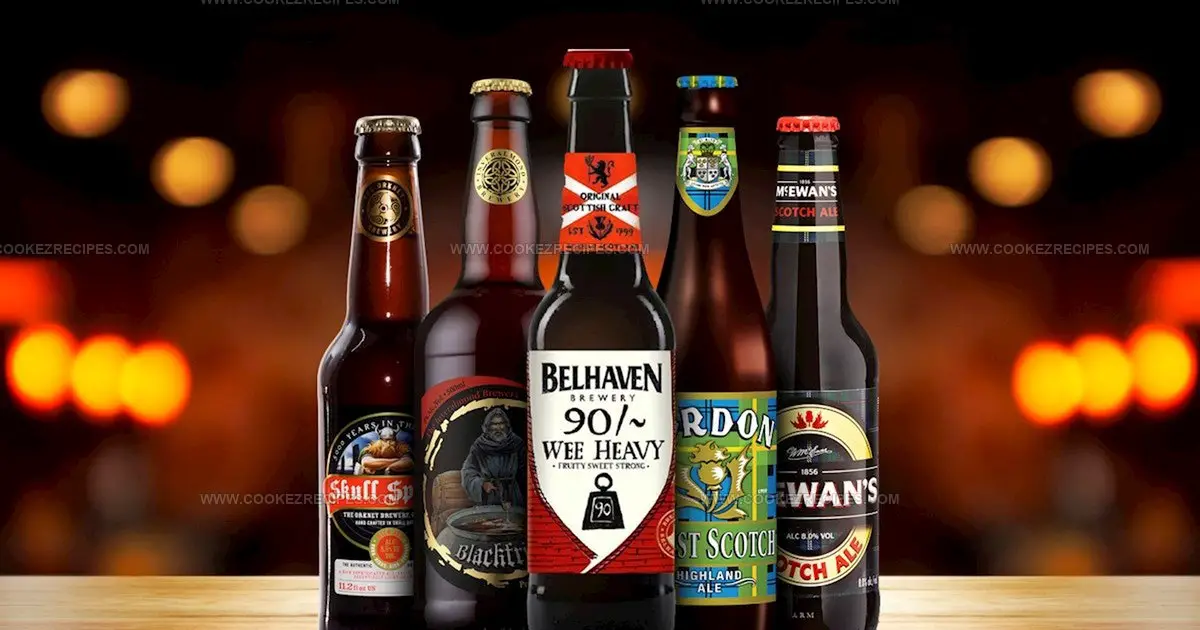
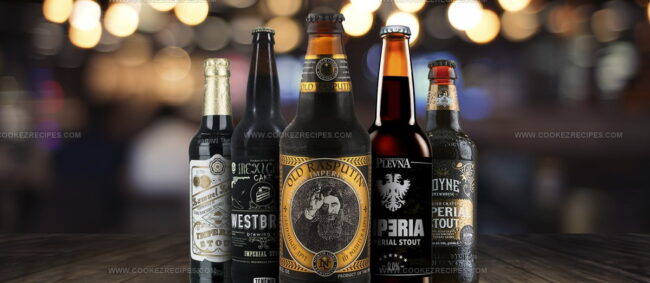
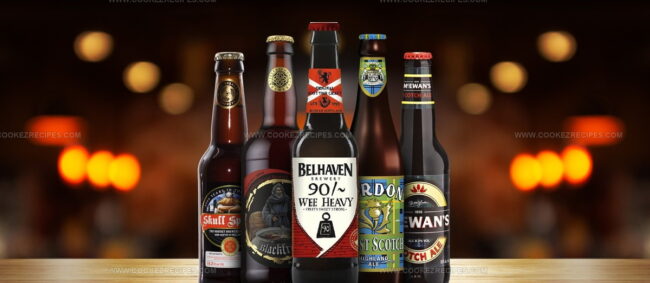
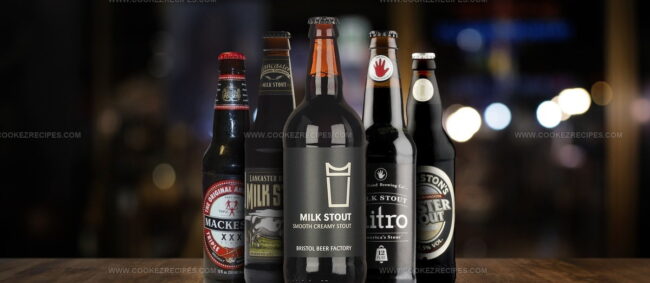
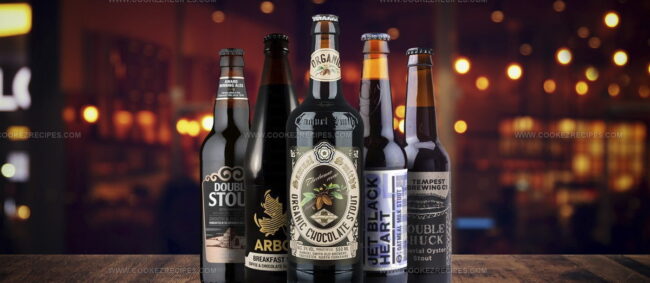
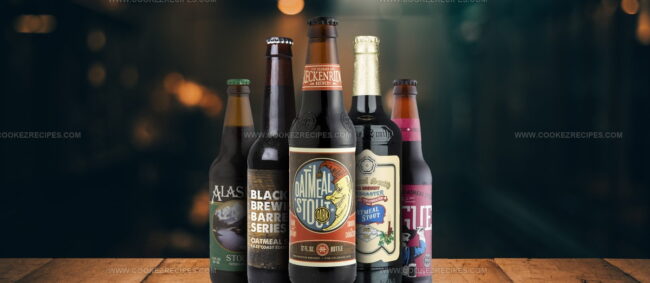
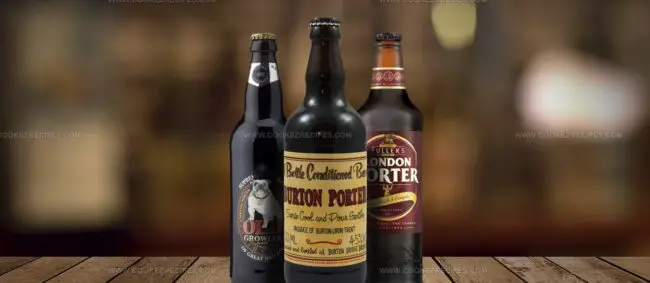
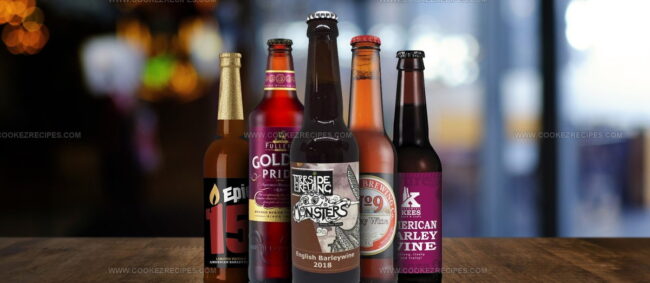
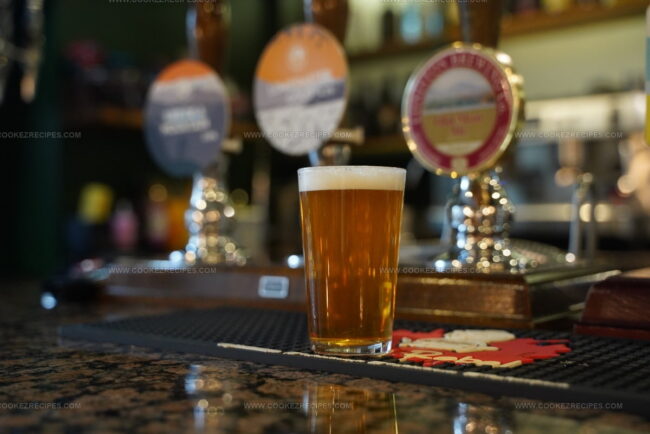
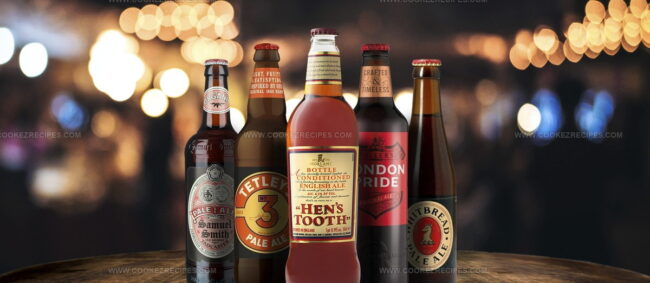
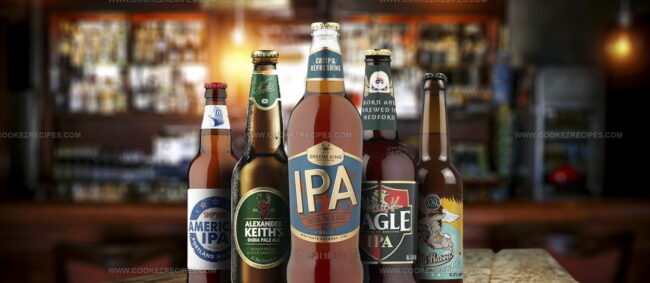
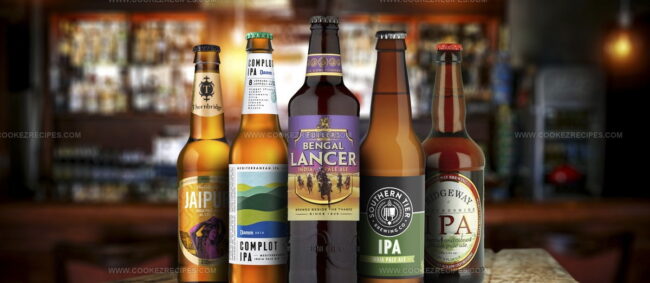
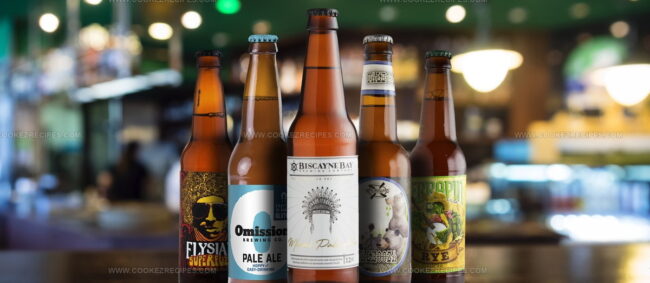
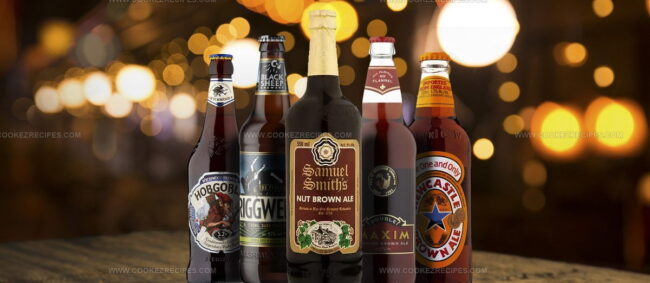
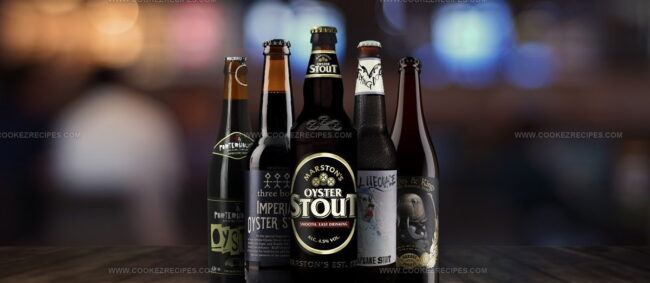
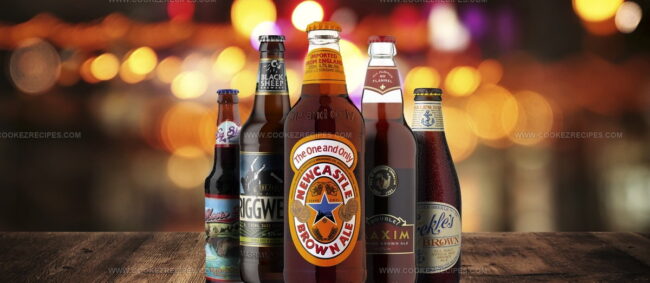
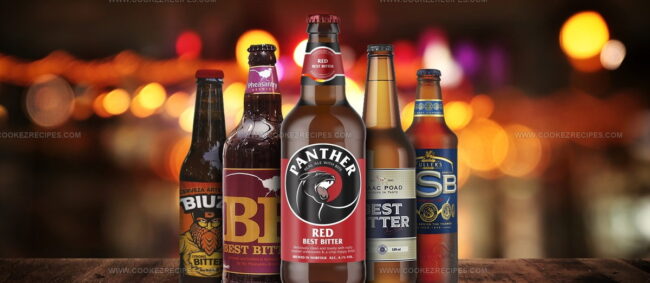
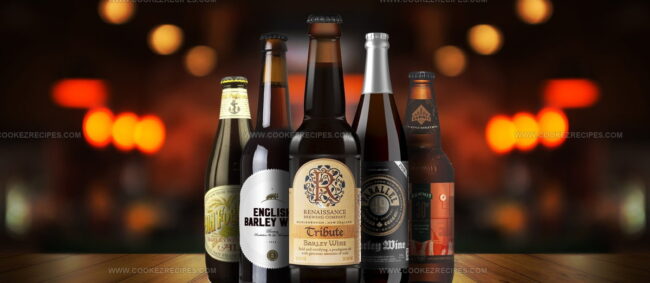
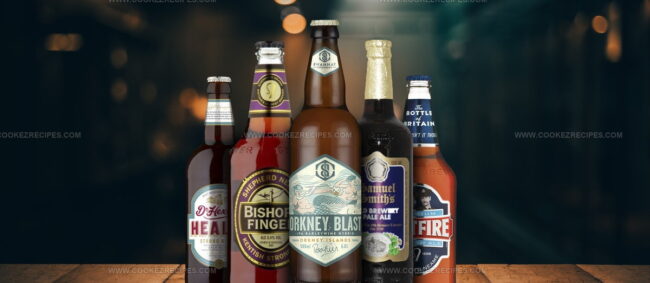
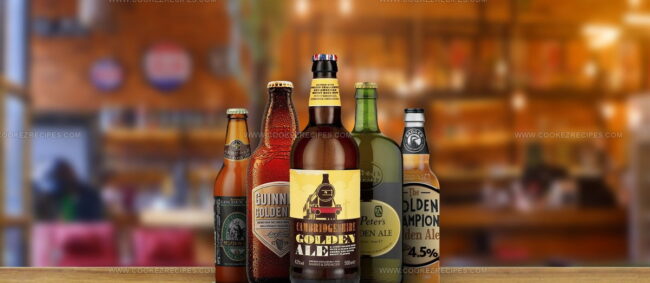
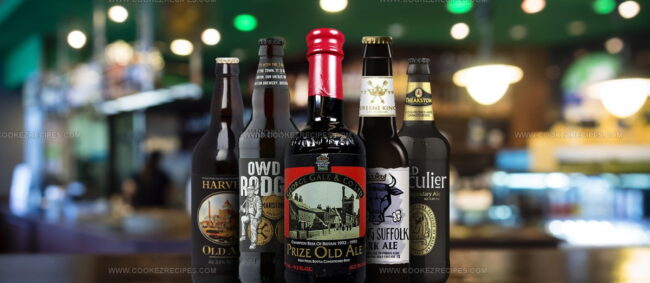

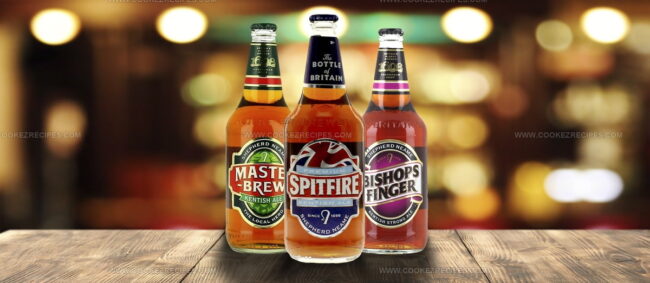
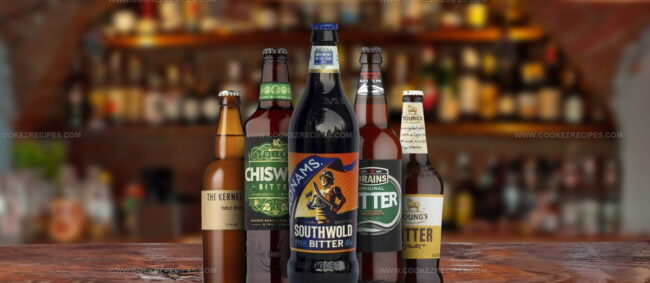
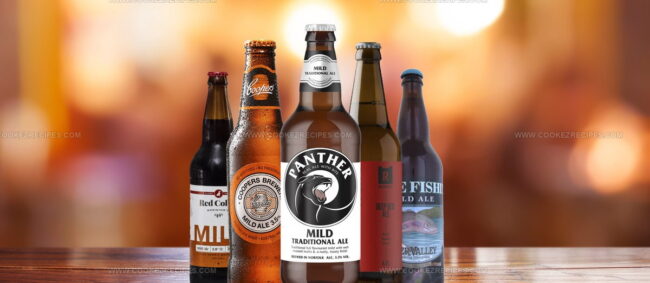
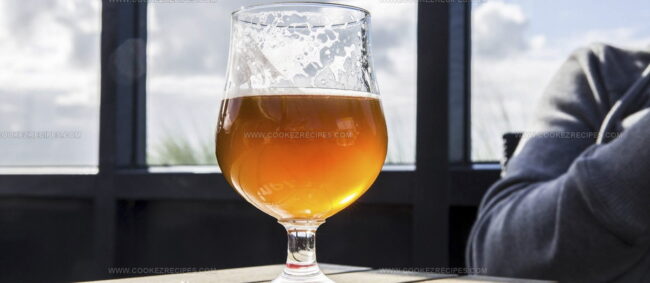
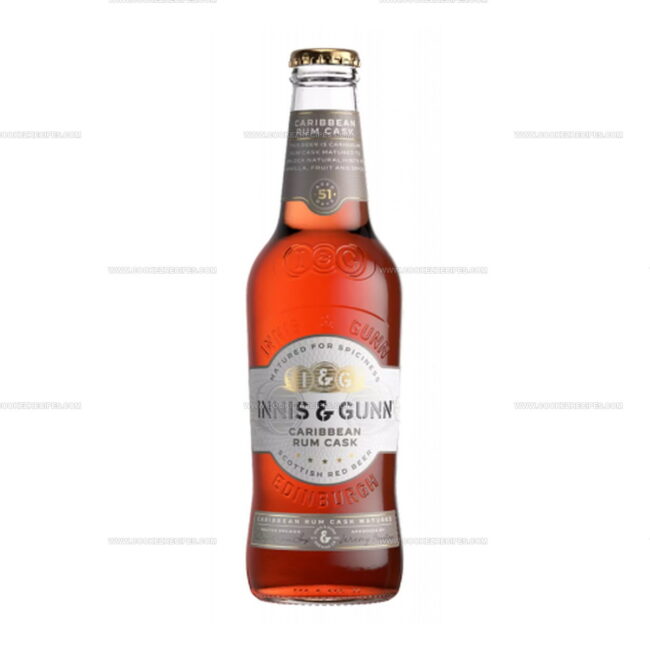
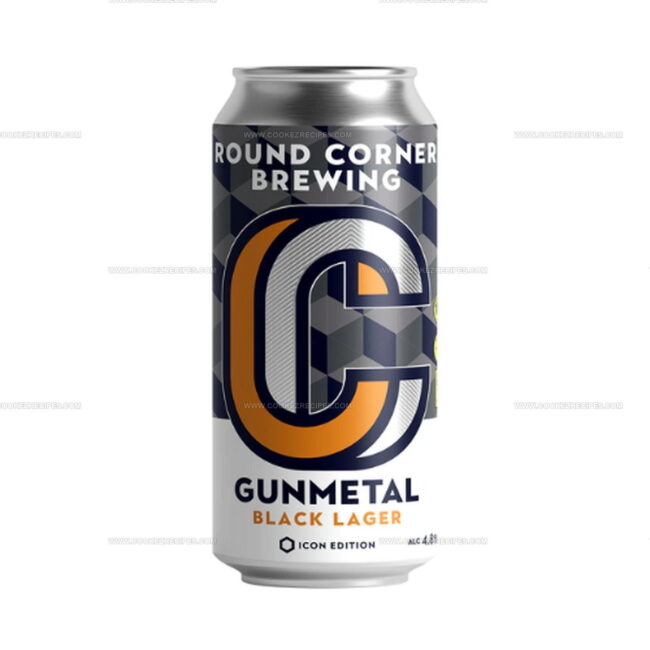
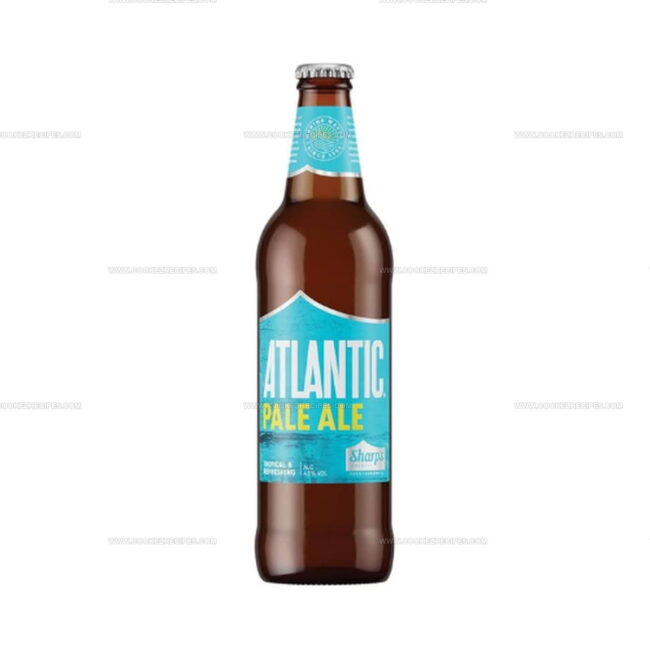
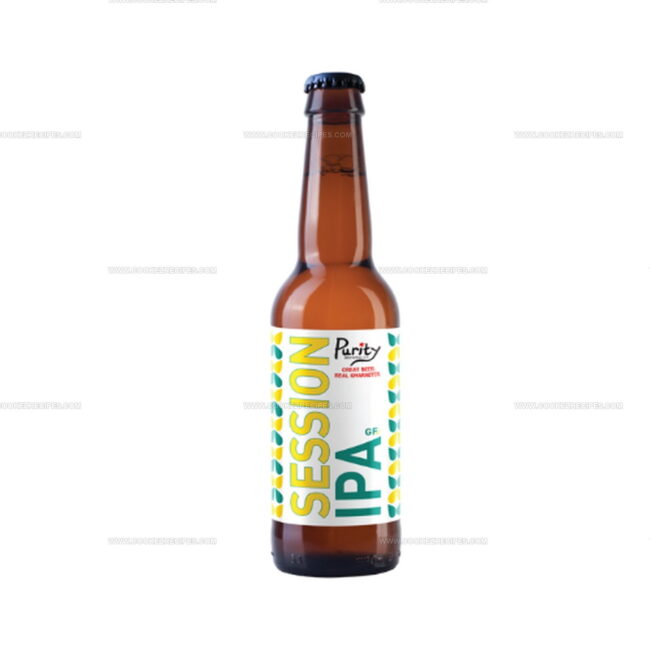
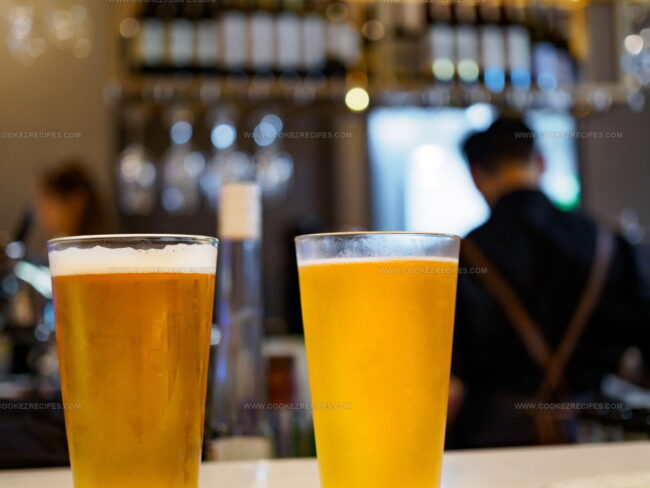
Daniel Bruns
Founder & Culinary Innovator
Expertise
Recipe development for home cooks, Nutritional analysis and meal planning, Culinary education and food writing
Education
Auguste Escoffier School of Culinary Arts
Diploma in Culinary Arts and Operations
Focus: Classical and contemporary cooking techniques, Culinary entrepreneurship and kitchen management, Menu development and food cost analysis
Daniel’s story started with flour on his face and a pie in the oven at his grandma’s house. He later sharpened his skills at the Auguste Escoffier School of Culinary Arts.
His goal? Recipes so simple you’ll want to cook every night. When he’s not whipping up one-pan wonders, Daniel’s outside picking herbs, hosting neighborhood cook-offs, or baking chocolate cakes with his kids, messy, sweet, and unforgettable.